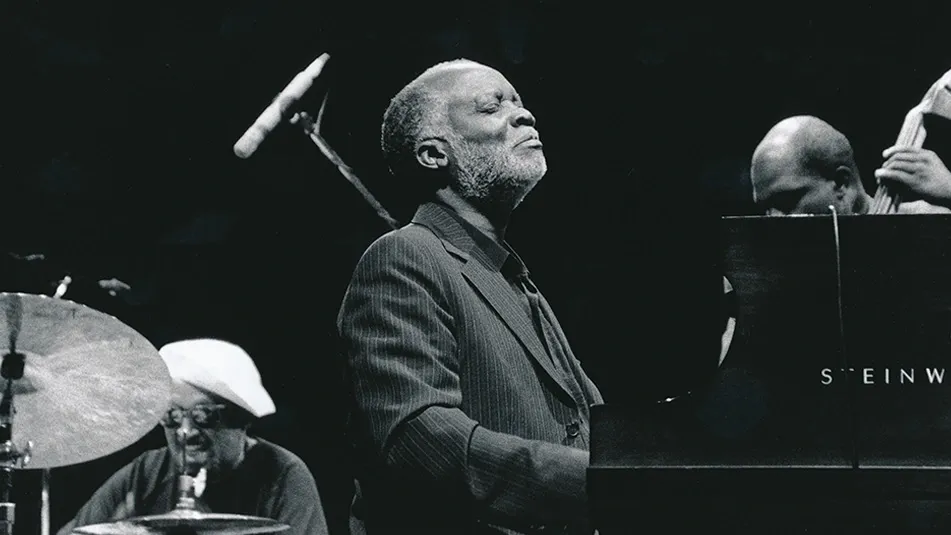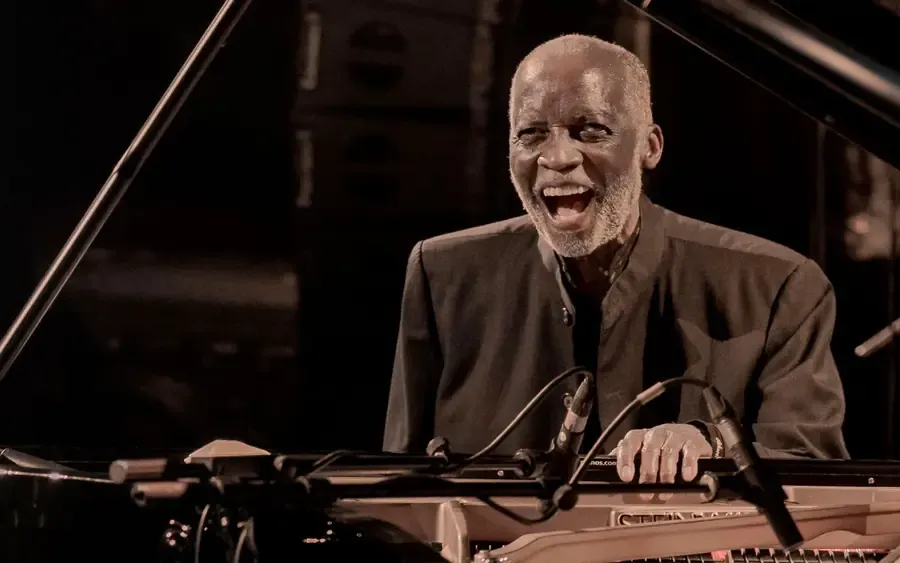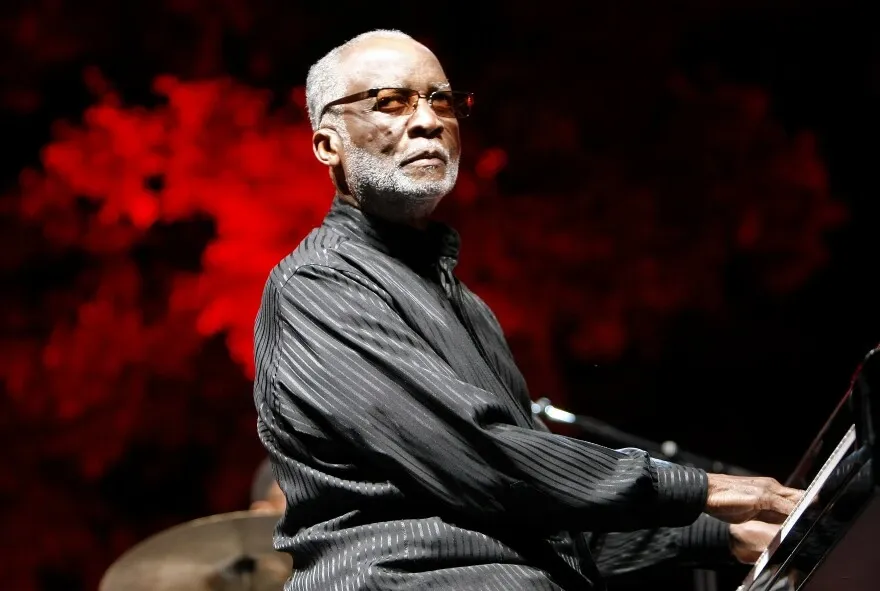Ahmad Jamal: Biography, Musical Style & Videos

Ahmad Jamal recorded his first album known as ‘Ahmad’s Blues’ on the Okeh Records. His other records included the folk tune of the time Poinciana and Billy Boy. He recorded his first Argo Records which had the album New Rhumba, Medley, It Ain’t Necessarily so, and Excerpts from the Blues.
In 1958, Jamal made a live album But Not For Me for the Argo Records. Jamal started learning piano at the age of three. After receiving his formal education in music, he joined the Westinghouse High School at the age of seventeen where he worked to claim himself as a solo artist. Jamal formed his first trio in 1950 and named it The Three Strings.

Jamal received the award of the American Jazz Masters from the National Endowment for the Arts in 1970. Many of his compositions were also featured in great films of the time.
Jamal faced a minor loss in his career during the late 60s however his albums including the Cry Young and Standard Eyes brought his value back to the audiences.
Jamal came up with the albums in the 70s which made him popular again. In the early 80s, Jamal toured and recorded with Gary Burton due to which he got too much popularity and after that, he even signed with the Atlantic in 1985.
Some of his works, Rossiter Road, Pittsburgh, Digital Works, and Crystal made the through the charts for the next five years. Jamal’s recordings were initially distributed in the US by Atlantic and Verve and then Dreyfus Jazz label also started distributing his recordings and albums.
Jamal was awarded as with the Downbeat’s 76th Reader’s Poll Hall of Fame. His latest album opened to a sold-out performance in Paris in a theatre. Jamal who has been gaining popularity for over four decades now is noted for his outstanding music composition and also for giving a whole new direction to the Jazz music.
Biography

Born on July 2nd, 1930, Ahmad Jamal was a child prodigy who started playing piano when he reached the age of 3 however; his formal studies were started when he was at the age of 7. He belonged to Pittsburgh, Pennsylvania.
While studying in high school, he accomplished the corresponding masterclass under a noted African American concert singer and teacher Mary Caldwell Dawson and the famous pianist James Miller.
At the age of 14, Jamal joined the musicians union and began touring at the age of 17 after his graduation from the Westinghouse High School. Jamal formed his first trio, The Three Strings in 1950 and performed at New York’s The Ember Club. The Three Strings were then discovered by the Record Producer John Hammond and signed for Okeh Records.
Jamal continued recording his amazing and mind-blowing arrangements which had a classic level. Some of his classic compositions included ‘A Time for Love,’ ‘End of a Love Affair.’ ‘I Love You’ and ‘On Green Dolphin Street.’
After they got signed up for the Okeh Records, Jamal recorded his ‘Ahmad’s Blues’ in 1951. His classic folk tune ‘Poinciana’ and ‘Billy Boy’ were also produced in this period.
Jamal recorded his first Argo Records album in 1955 which had the famous hits including Excerpts From the Blues, It Aint Necessarily So, New Rhumba, and Medley. Jamal’s extraordinary creative qualities made him ahead of other pianists and musicians.
Jamal joined Israel Cosby in 1955 and in 1956 Jamal replaced Ray Crawford who was the guitarist with a drummer. The drummer Vernell Fournier joined Jamal’s trio in 1958 after which they made a live album named ‘But Not for Me’ for the Argo Records. For 108 weeks, the album But Not for Me remained on the top ten best-selling hits for almost a hundred and eight weeks.
Since Jamal was financially strong, he revived his dream of opening a restaurant, The Alhambra in Chicago. His trio then performed in the club and limited their tours while Jamal had more opportunity to do the record production and other community work.
Jamal had performed the title tune by Johnny Mandal which was used for the soundtrack for the film named ‘Mash!’ in 1970. However, his two tracks were then used in the film ‘The Bridges of Madison County’ which included ‘Music, Music, Music’ and ‘But Not For Me.’
Jamal received the American Jazz Masters award in 1994 from the National Endowment for the Arts. In the same year, he performed commissioned works with Assai String Quartet and was named as a Duke Ellington Fellow at Yale University.
Jamal’s CD ‘The Essence’ had the featuring of theme saxophonist George Coleman with whom Jamal made his first recording using the horn. Jamal received two awards ‘D’jango D’or and Cloch in France for critics and best sales respectively.
Five decades that have been covering Jamal’s career are the most wonderful and contain some historical data. Jamal has been the greatest pianist and music composer of the time and has performed with many famous celebrities of the time.
Musical Style
Ahmad Jamal, a major influence on Miles Davis is not commonly named among the all-time jazz musicians. However, Jamal with his creative and minimalist approach won the hearts of many. He manipulated the music of tension and release, space and silence, and vitality giving a whole new ground to the music and had an amazing impact more than Jamal’s trio’s format.
He not only worked as the bandleader but also made the most of the settings of his small groups by thinking of them as an orchestra. Jamal used his trademark devices in order to create the dramatic effect in his work with a contrast that allows the rhythm section a great deal of sovereignty in the interplay.
Jamal never tried to overwhelm his audience with his techniques but his playing was a model of the economy. The virtuosity of his compositions was the most impactful. His lines were harmonically inventive and lines were soothing to hear. The amalgamation of sensibility and classical formality made his composition more meaningful and powerful.
Jamal’s work definitely had the concepts of space and delicacy as a bandleader and a soloist. His work not only gained recognition in the whole of the United States of America but he was awarded by the French Government which initiated Jamal into the impressive Order of the Arts and Letters by French Culture Mister Minister Renaud Donnedieu de Vabres.
Jamal’s recording A Quiet Time which was released in January became the number one hit on the jazz radio till today. Jamal not only attains an incorporated sound but subtly gives an independent role to the drums and the bass. His hallmarks are rhythmic creativity with hued harmony.
Ahmad Jamal was quite influential to many jazz lovers who tried to adapt Jamal’s style for their work and many of them have surely pursued his style in their careers.




Comments ()